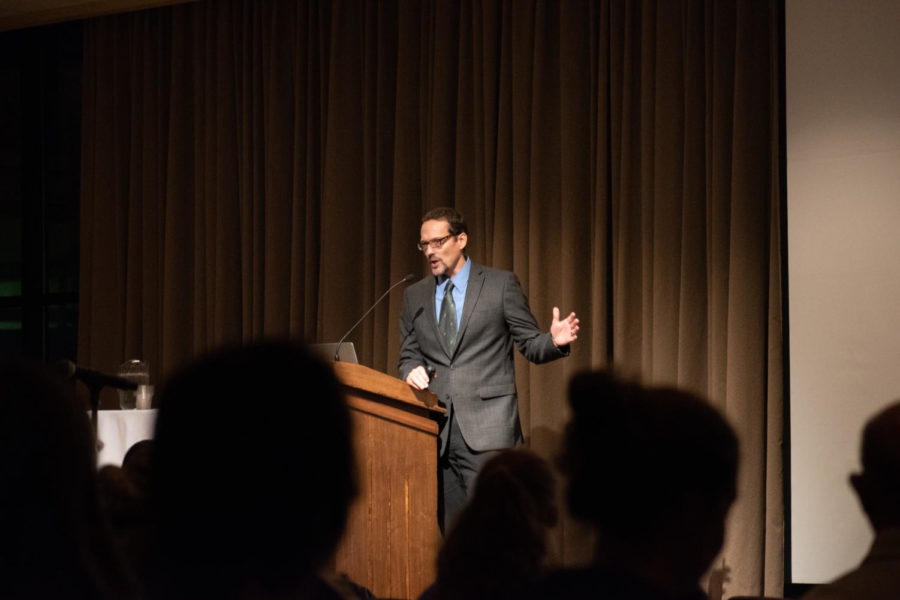Michigan State professor discusses the expansion of the global meat industry
Ariana Sanchez/Iowa State University
Phil Howard, associate professor in the department of community custainability at Michigan State University and author of “Concentration and Power in the Food System: Who Controls What We Eat?” dove into consumer demand, ecology and economics, and government financing at his lecture Oct. 10 in the Memorial Union.
October 10, 2018
Phil Howard, associate professor of community sustainability at Michigan State University, spoke about the expansion of global meat processing companies in his lecture: “Visualizing Consolidation in the Global Meat Processing Industry” Wednesday night at the Memorial Union.
Howard’s main focus while conducting research was the expanding of meat processing companies to other continents. Howard concentrated his research on three major companies—Tyson, WH Group and JBS—all three being some of the largest meat producers in the world.
Howards explained how increasing consumption within the food industry is difficult, so major companies such as Tyson, WH Group and JBS, acquire and invest in many firms globally to rebrand the same products.
“Even though consumption in the U.S. is not increasing, by focusing on branded highly processed products, that’s a way to further increase profits,” Howard said.
Companies like Tyson—one of the largest chicken producers in the United States—have a list of other recognizable companies under its belt such as Jimmy Dean, Hillshire Farms and Ball Park. Having a list of recognizable names under Tyson’s belt only increases their profit globally, Howard said.
Howard said there is a global competition growing between these companies. WH Group— located in China and a company that dominates the pork industry—was given a $4 billion loan from the Bank of China. Howard said in the Bank of China’s annual report they considered it a social responsibility to help Chinese firms acquire foreign competitors.
He discussed how thousands of local townspeople in Tonganoxie, Kansas, opposed a Tyson poultry farm, which ultimately led to Tyson moving the location of the plant to Tennessee.
These protests against processing plants are becoming a growing issue in Iowa, Kansas and Illinois, Howard said.
Another threat to the growth of expansion are diseases such as influenza and more recently African swine fever.
“In 2014-2015 over 50 million chickens and turkeys were killed or slaughtered as a result of avian influenza,” Howard said.
Howard’s research focuses on consolidations in food systems. He is currently a member of the international panel of experts on sustainable food systems. Howards is also well known for data visualizations of food and agricultural data, according to the lectures program.
















